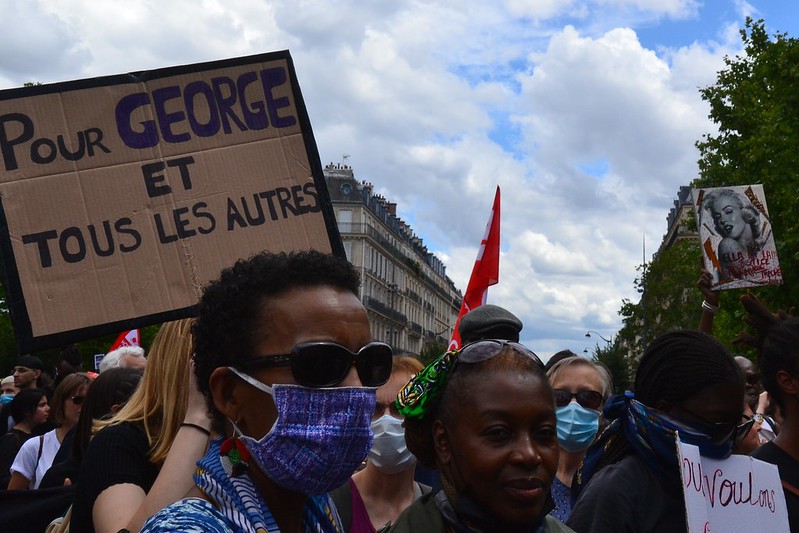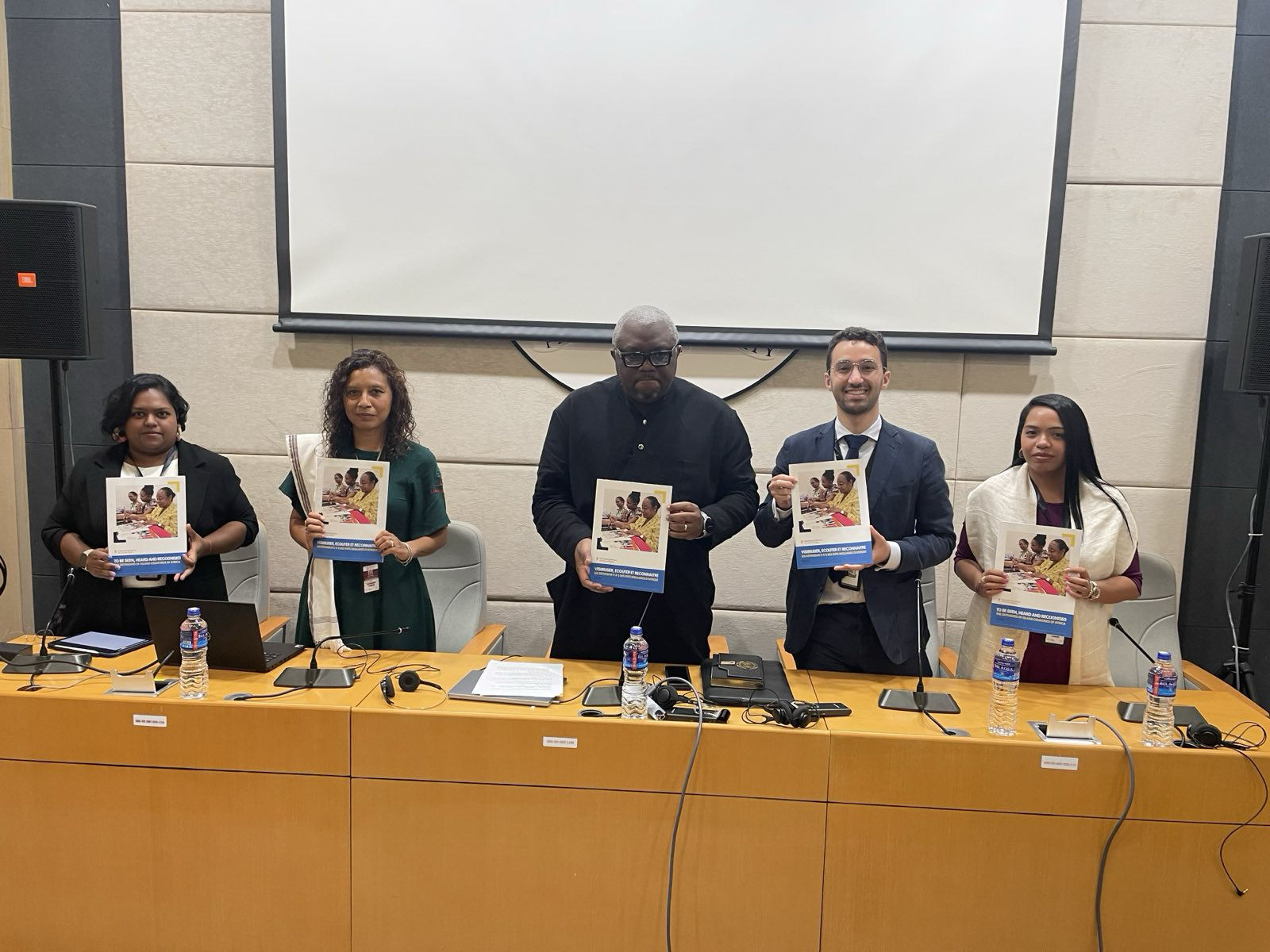
Egypt: Reform unjust vice laws, guarantee open civic space
During Egypt's UPR adoption at HRC59, Nora Noralla delivered a joint statement on behalf of ISHR, Cairo 52 and Middle East Democracy Center. Watch and read the full statement below.

Lire cet article en français ici 请点此阅读中文版
The UN Working Group on People of African Descent shed light on impunity for police violence against people of African descent. Comité Adama and ISHR demanded an end to racially motivated police violence in France, which is a candidate for election to the UN Human Rights Council for 2021.
Comité Adama, supported by ISHR, urged France to put an end to police violence and to ensure that anti-racism defenders can carry out their work without hindrance. They also called on France to ensure transparent and thorough investigations and stressed that this would be the minimum for a State seeking membership of the Council.
They recalled that it has been four years of judicial proceedings and still no justice for the family of Adama Traoré, who was killed by the police, with the Working Group taking up his case in 2017. They also highlighted that violations affect not only victims of police violence but also peaceful protesters who defend them, and extending far beyond the demonstrations, affect defenders in their private lives, through unfounded prosecutions and intimidation.
They asked the Working Group what role can the Council play to hold France accountable for racially motivated police violence. The Working Group responded that they had sought for a longtime to visit France and stressed the importance of country visits to elevate and make visible these issues. ISHR urges France to grant unhindered access to the Working Group, without delay.
The Working Group urged the Council and States to take clear and unequivocal steps to end impunity and tackle the root causes of systemic racism. They reiterated their calls to States to implement the Durban Declaration and Programme of Action, embrace the International Decade of People of African Descent and operationalise the Permanent Forum on People of African Descent.
The Working Group will provide its expertise to the High Commissioner in preparing the report on systemic racism, police violence against Africans and people of African descent, and government responses to anti-racism protests.
The Working Group presented its annual report. Amongst the key issues they raised:
The Working Group also presented their country visit reports to Ecuador and Peru.
Watch the joint statement by Comité Adama and ISHR :
Photo: Flickr_Jeanne Menjoulet

During Egypt's UPR adoption at HRC59, Nora Noralla delivered a joint statement on behalf of ISHR, Cairo 52 and Middle East Democracy Center. Watch and read the full statement below.

The 59th session of the UN Human Rights Council (16 June to 9 July 2025) will consider issues including civil society space, climate change, sexual orientation and gender identity, violence and discrimination against women and girls, poverty, peaceful assembly and association, and freedom of expression, among others. It will also present an opportunity to address grave human rights situations including in Afghanistan, Belarus, China, Eritrea, Israel and oPt, Sudan, Syria and Venezuela, among many others. Here’s an overview of some of the key issues on the agenda.

On 4 May 2025, on the sidelines of the 83rd Ordinary Session of the African Commission on Human and Peoples’ Rights (ACHPR) in Banjul, ISHR officially launched its new report on the situation of human rights defenders in the African island states: Cape Verde, Comoros, Madagascar, Mauritius, São Tomé and Príncipe, and Seychelles.